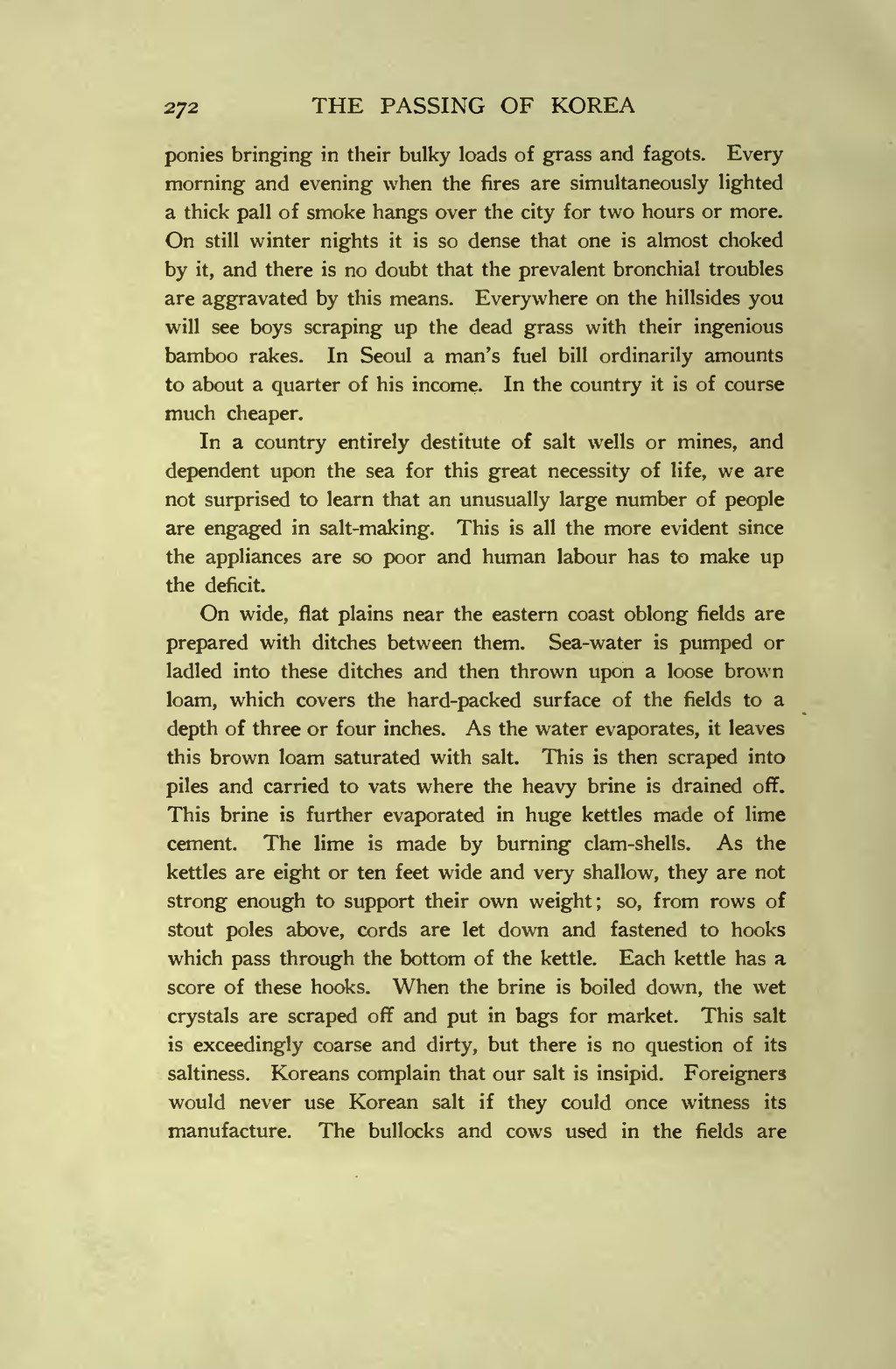ponies bringing in their bulky loads of grass and fagots. Every morning and evening when the fires are simultaneously lighted a thick pall of smoke hangs over the city for two hours or more. On still winter nights it is so dense that one is almost choked by it, and there is no doubt that the prevalent bronchial troubles are aggravated by this means. Everywhere on the hillsides you will see boys scraping up the dead grass with their ingenious bamboo rakes. In Seoul a man's fuel bill ordinarily amounts to about a quarter of his income. In the country it is of course much cheaper.
In a country entirely destitute of salt wells or mines, and dependent upon the sea for this great necessity of life, we are not surprised to learn that an unusually large number of people are engaged in salt-making. This is all the more evident since the appliances are so poor and human labour has to make up the deficit.
On wide, flat plains near the eastern coast oblong fields are prepared with ditches between them. Sea-water is pumped or ladled into these ditches and then thrown upon a loose brown loam, which covers the hard-packed surface of the fields to a depth of three or four inches. As the water evaporates, it leaves this brown loam saturated with salt. This is then scraped into piles and carried to vats where the heavy brine is drained off.
This brine is further evaporated in huge kettles made of lime cement. The lime is made by burning clam-shells. As the kettles are eight or ten feet wide and very shallow, they are not strong enough to support their own weight; so, from rows of stout poles above, cords are let down and fastened to hooks which pass through the bottom of the kettle. Each kettle has a score of these hooks. When the brine is boiled down, the wet crystals are scraped off and put in bags for market. This salt is exceedingly coarse and dirty, but there is no question of its saltiness. Koreans complain that our salt is insipid. Foreigners would never use Korean salt if they could once witness its manufacture. The bullocks and cows used in the fields are
